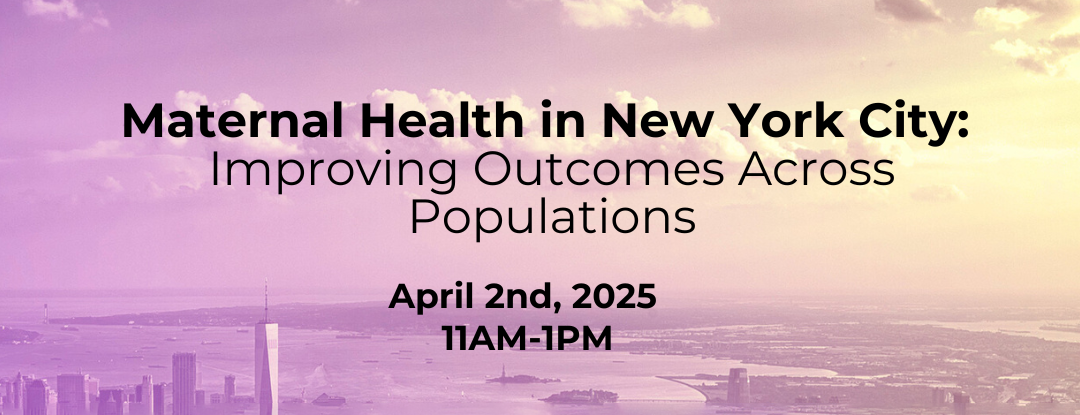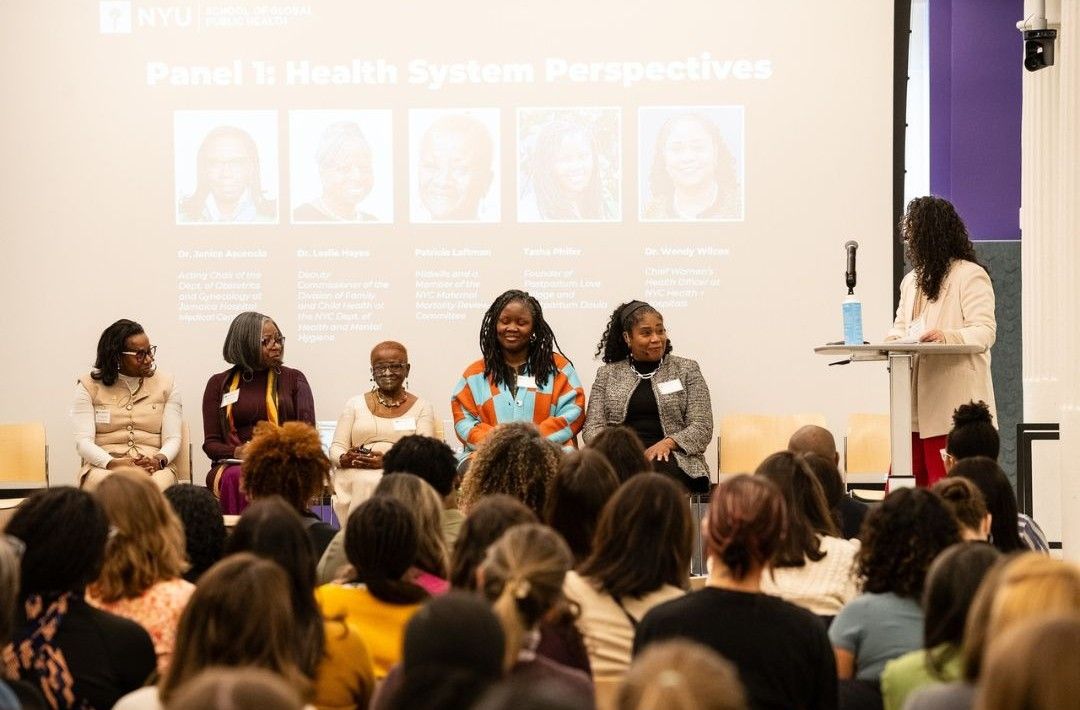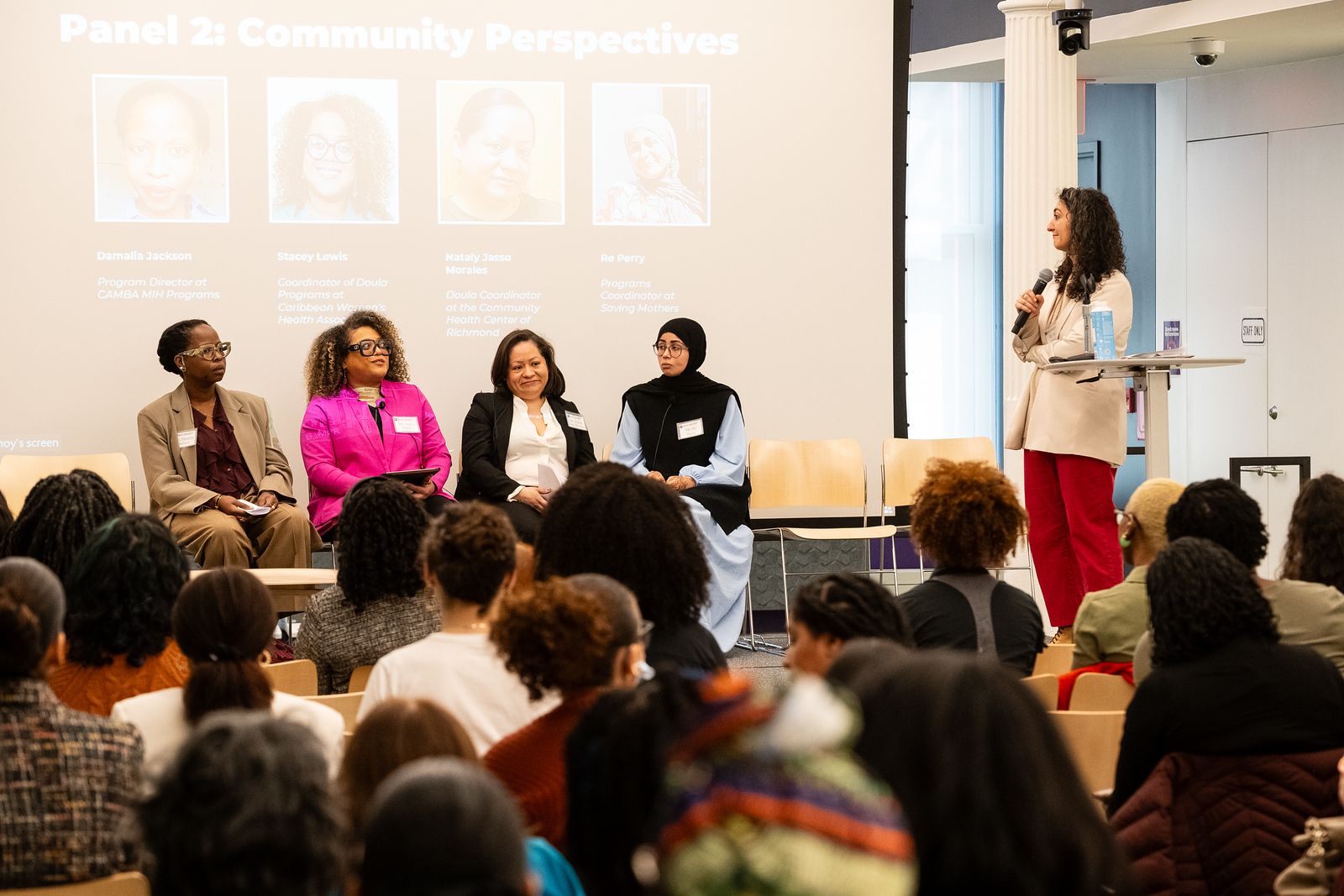
Pregnancy-related deaths–defined as occurring during pregnancy, childbirth, or up to 1 year of termination of pregnancy–have significant and broad negative public health and societal impacts. Globally, maternal mortality is on the decline. However, the United States remains an outlier among high-income continues with its persistently high maternal mortality rates. This burden is amplified among women facing socioeconomic inequities within the US. New York was ranked 20th in the country for pregnancy-associated deaths.
To shed more light on this pressing crisis and identify strategies to mitigate it, the Global Center for Implementation Science co-hosted a symposium on April 2nd 2025, titled “Maternal Health in New York City: Improving Outcomes Across Populations.”
The symposium was held at the NYU School of Global Public Health (GPH) and began with an introduction from the Interim Dean of GPH, Dr. Melody Goodman, and a keynote presentation from Dr. Zahirah McNatt, the Chief Equity Officer and Deputy Commissioner for the Center for Health Equity and Community Wellness (CHECW) at New York City Department of Health & Mental Hygiene. In her remarks, Dr. McNatt highlighted the disparities in pregnancy-related deaths in NYC and actionable steps for reducing maternal mortality.
Patricia Loftman, Certified Nurse-Midwife & former Midwifery Service Director at Harlem Hospital Center

With over 115 guests in attendance—including students, researchers, and representatives from community organizations—the symposium served as both a platform for elevating community voices and leaders, and a powerful reminder of the importance of partnerships between communities and health systems in public health. Through the panel discussions, attendees explored gaps in maternal care, shared strategies employed by their organizations, and examined evidence-based interventions with the potential to be scaled up.

- Situating maternal health and maternal health care into a life course approach that seeks to improve the health of minoritized women before, during, and after their experiences of childbirth.
- Increasing access to maternal health care across all of New York, especially for people in underserved areas.
- The need for increased funding for maternal health initiatives.
- Strengthening connections between community organizations and health systems, including for diverse models of care and programming that can reach families and communities where they are.
- The importance of postpartum care to prevent maternal morbidity.